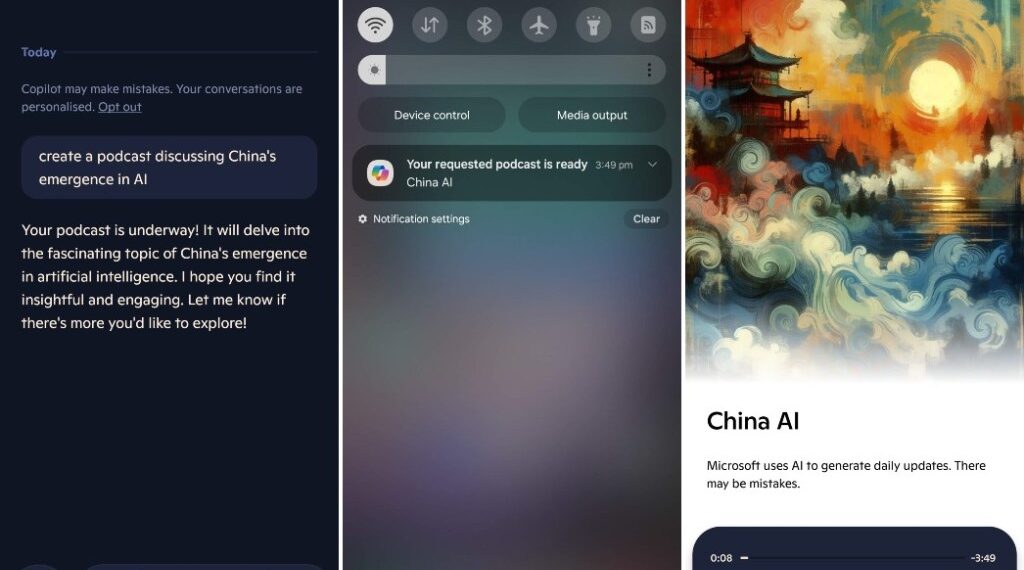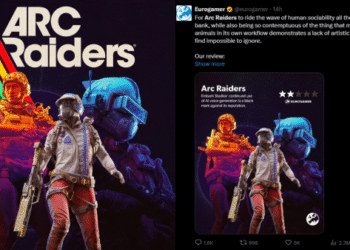Select Language:
To commemorate its 50th anniversary, Microsoft hosted a special event focused on Copilot, where they unveiled several new AI features for the Copilot chatbot. One feature that particularly piqued my interest was Copilot Podcasts. Previously, I had tested NotebookLM and was impressed by its AI-generated podcast capabilities. Therefore, I decided to evaluate Microsoft’s Copilot Podcasts to see how convincingly it could generate a podcast.
The good news is that Copilot Podcasts is immediately available for users, unlike some other features announced during the event.
To begin, simply launch the Copilot app on your Windows, macOS, Android, or iOS device and enter the prompt “create a podcast on…”. Within about a minute, Copilot will generate a four-minute AI podcast. You can also try this feature directly on Microsoft Copilot’s website (visit here).
Once your podcast is generated, you will receive a notification on your device, or you can check Copilot’s homepage where your AI-generated podcast will be displayed. However, it’s important to note that there are no options to adjust playback speed, and downloading the podcast is not available through Copilot’s interface.
Testing Copilot Podcasts
In my experiment, I requested Copilot to create a podcast about China’s rise in AI. Given my role covering AI topics, I thought this would be an appropriate subject to explore Copilot’s podcasting abilities. Right off the bat, unlike NotebookLM—whose output feels conversational and engaging—Copilot Podcasts come across more like a text-to-speech rendition.
The voice of Copilot AI is mechanical and synthesized, lacking natural pauses and the human-like fillers such as “uhs” and “ums” that typically give podcasts a conversational tone. The interaction between the two AI hosts feels dull and scripted, almost like a monotonous daily news brief.
While there are some tonal variations and emphasis in the voices, this is the extent of the realism offered by Copilot Podcasts. In terms of conversational depth, the podcast merely skimmed the surface of the DeepSeek R1 development without delving into substantial details, making it sound overly verbose with little informational depth.
In contrast, listen to the Google NotebookLM podcast, which runs for 20 minutes (I’ve included a shorter clip below) and provides a significantly richer experience. I utilized NotebookLM’s new Discover Sources feature to build a knowledge base on China’s advancements in AI before generating my podcast.
As shown in this clip, the podcast sounds much more natural, with considerable cross-talk between the AI hosts. You’ll also notice the use of natural pauses and expressive cues, making it feel more engaging. Additionally, NotebookLM allows for real-time interaction with the AI hosts, which enhances user engagement. Plus, you have the option to adjust the playback speed and download the audio clip.
Overall, Copilot Podcasts feels underdeveloped in its current iteration. It lacks voice tonality realism and isn’t suited for creating natural, fluid conversations. Microsoft needs to enhance Copilot Podcasts significantly by incorporating more insightful content and improving audio quality to create a more human-like experience.





